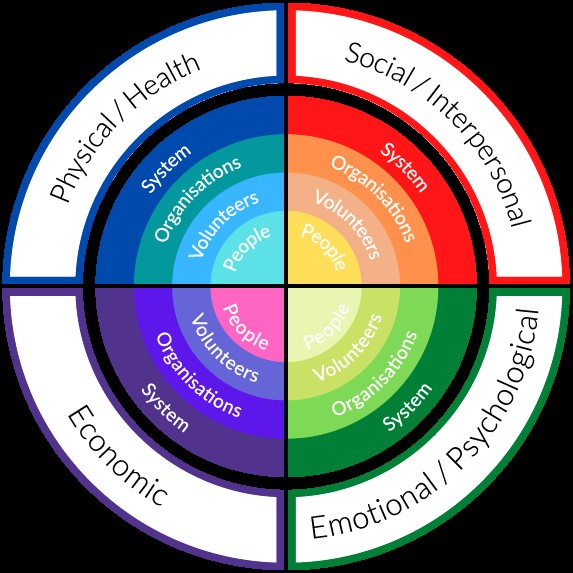Dr Julie MacInnes

Funder: Towards Changing Practice, Applied Research Collaboration, Kent, Surrey, Sussex
May 2021 – March 2023
To develop and test a set of resources and guidelines – the CAVEAT ‘toolkit’ – that Voluntary, Community and Social Enterprise (VCSE) organisations can use to collect information and data to demonstrate their activities and impact.
The COVID-19 pandemic highlighted the important contribution of charities, voluntary organisations, local community and faith groups in supporting older people at home. Beyond the pandemic, these organisations are integral to the delivery of the social prescribing initiative set out in the NHS long-term plan. Social prescribing enables GPs and other professionals to refer people to a range of local, non-clinical services to support their wellbeing. There is a need for voluntary, community and social enterprise (VCSE) organisations to demonstrate the scope and nature of the work they do; that they provide value for money; and that services are of a high standard and meet the needs of the people they support. Our previous research (COV-VOL) showed that many organisations do not collect the data that would enable them to provide such evidence. The CAVEAT project will develop and undertake preliminary testing of a toolkit for recording activity and impact that can be used by these organisations. This is important for securing ongoing funding and to feedback to the people they support and others, including volunteers, health and social care staff and those commissioning services.
PCI&E is integral to all stages of the research process from the inception of the project, through implementation and dissemination of findings.
Two members of the ‘Opening Doors to Research’ group will be part of the advisory group. In addition, two older people who use voluntary, community or social enterprise services will be invited to participate in a consensus building workshop to develop the toolkit; Older people who use these services will also be part of the working groups at each of the 4 case sites to test the toolkit in practice.
Planned outputs include:
- Regional launch and training webinar(s) – we will run a webinar or series of webinars aimed at sharing CAVEAT with stakeholder groups in the region.
- Publication(s) – We aim to publish a minimum of one academic paper in a high impact, peer reviewed academic journal. This paper will be aimed at VCSE leads, health and social care professionals, Local Authorities, commissioners, academics and researchers.
- National/International Conference paper(s) – We will submit a minimum of one conference abstract for presentation at a recognised and respected national or international conference. This will be aimed at VCSE leads, health and social care professionals, Local Authorities, commissioners, academics and researchers.
- Final report – We will produce a comprehensive final report including an executive summary, methods and findings. The report will primarily be for use by the project funder but the executive summary will be circulated to all relevant stakeholders and will have a link to an online version of the full report.
- ‘Easy read’ lay summary – We will produce a summary of the project for members of the public who took part in the study and for circulation to other PCI&E groups.
Who is involved
- Dr Vanessa Abrahamson
- Professor Heather Gage, University of Surrey
- Dr Bridget Jones, University of Surrey
- Kat Frere-Smith, Brighton and Sussex Medical School